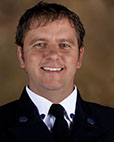Drugs & Alcohol
Darkness in a firefighters soul At first you don't notice, they are small shadows in your everyday routine. Day by day,...
Posted by URnotAlone.support on Friday, May 6, 2016
 IUSIUDUHH ijjiiwe
IUSIUDUHH ijjiiwe
sbiuauudbhdhwie ijscbb





















Drug Abuse
Many people use drugs in order to escape physical and emotional discomfort. Some start using drugs to numb feelings of depression. Others self medicate to deal with stress coming from home. Short term use of sleeping pills to cope with sleep deprivation or taking prescription painkillers to relieve chronic pain can easily lead to long term dependence and abuse.
Drug use simply masks the symptoms.
While drugs might make you feel better in the short-term, attempts to self-medicate ultimately backfire. Instead of treating the underlying problem, drug use simply masks the symptoms. Take the drug away and the problem is still there, whether it be anxiety, depression, or a stressful family situation. Furthermore, prolonged drug use eventually brings its own host of problems, including major disruptions to normal, daily functioning. Unfortunately, the psychological, physical, and social consequences of drug abuse and addiction become worse than the original problem you were trying to cope with or avoid.
Some signs and symptoms of Drug Abuse:
•You've built up a drug tolerance. You need to use more of the drug to experience the same effects you used to with smaller amounts.
•You take drugs to avoid or relieve withdrawal symptoms. If you go too long without drugs, you experience symptoms such as nausea, restlessness, insomnia, depression, sweating, shaking, and anxiety.
•You've lost control over your drug use. You often do drugs or use more than you planned, even though you told yourself you wouldn't. You may want to stop using, but you feel powerless.
•Your life revolves around drug use. You spend a lot of time using and thinking about drugs, figuring out how to get them, and recovering from the drug's effects.
•You've abandoned activities you used to enjoy, such as hobbies, sports, and socializing, because of your drug use.
•You continue to use drugs, despite knowing it's hurting you. It's causing major problems in your life: blackouts, infections, mood swings, depression, paranoia, but you use anyway.
Help and Support
If you or somebody close to you is feeling the effects of drugs abuse there are plenty of resources available.
Please feel free to take one of the confidential and completely anonymous ASSESSMENTS to help you gauge where you may be in you use.
•Navigate the website to Peer Support and ask one of the Peer Support Team members for information
•You can call also call our FIRE support line for more resources.
•In addition, your medical insurance usually covers rehab and detox facilities.
•You can also access many substance abuse therapists through your EAP (Employee Assistance Program) to aid you along the way to recovery.
Alcohol Abuse
Alcoholism is when you have signs of physical addiction to alcohol and you cannot control consumption, despite the fact that problems with physical health, mental health, relationships and responsibilities have suffered. Alcohol begins to or is controlling your life and relationships.
Alcohol abuse is when your drinking leads to problems, but not physical addiction.
Causes, incidence, and risk factors
How much you drink can influence your chances of becoming dependent. There is no known cause of alcohol abuse or alcoholism. Research suggests that certain genes may increase the risk of alcoholism, but which genes and how they work are not known. How much you drink can influence your chances of becoming dependent. Those at risk for developing alcoholism include:
•Men who have 15 or more drinks a week.
•Women who have 12 or more drinks a week.
•Anyone who has five or more drinks per occasion at least once a week.
•One drink is defined as a 12-ounce bottle of beer, a 5-ounce glass of wine, or a 1 1/2-ounce shot of liquor.
•You have an increased risk for alcohol abuse and dependence if you have a parent with alcoholism.
Signs and Symptoms of Alcohol Abuse
•Continue to drink, even when health, work, or family are being harmed.
•Become violent when drinking.
•Are not able to control drinking -- being unable to stop or reduce alcohol intake.
•Make excuses to drink.
•Miss work or school, or have a decrease in performance because of drinking.
•Stop taking part in activities because of alcohol.
•Need to use alcohol on most days to get through the day.
•Try to hide alcohol use.
•Memory lapses after heavy drinking.
•Needing more and more alcohol to feel "drunk".
•Alcohol withdrawal symptoms when you haven't had a drink for a while.
The following questions are used by the National Institute on Alcohol Abuse and Alcoholism to screen for alcohol abuse or dependence:
•Do you ever drive when you have been drinking?
•Do you have to drink more than before to get drunk or feel the desired effect?
•Have you felt that you should cut down on your drinking?
•Have you ever had any blackouts after drinking?
•Have you ever missed work or lost a job because of drinking?
•Is someone in your family worried about your drinking?
If you or somebody close to you is feeling the effects of alcohol abuse there are plenty of resources available. Please feel free to take one of the confidential and completely anonymous ASSESSMENTS to help you gauge where you may be in you use.
•Contact one of the Peer Support Team members.
•You can call also call our FIRE support line for more resources.
•In addition, your medical insurance usually covers rehab and detox facilities.
•You can also access many substance abuse therapists through your department’s EAP (Employee Assistance Program) to aid you along the way to recovery.